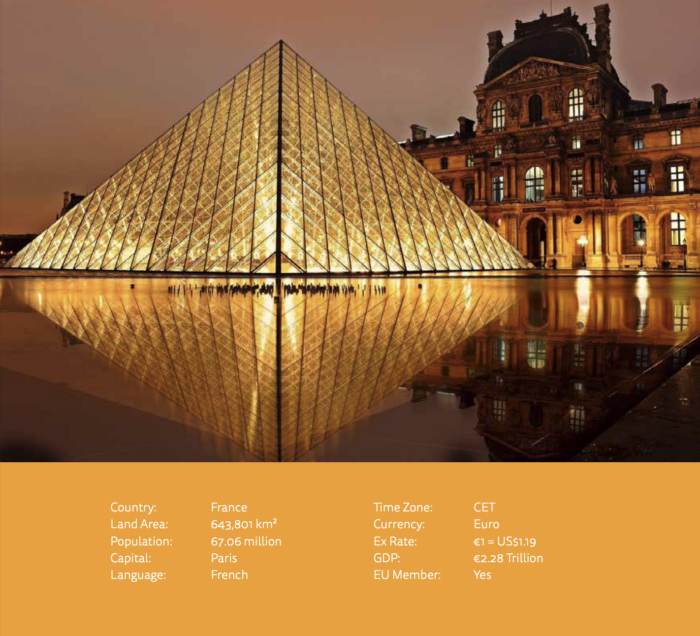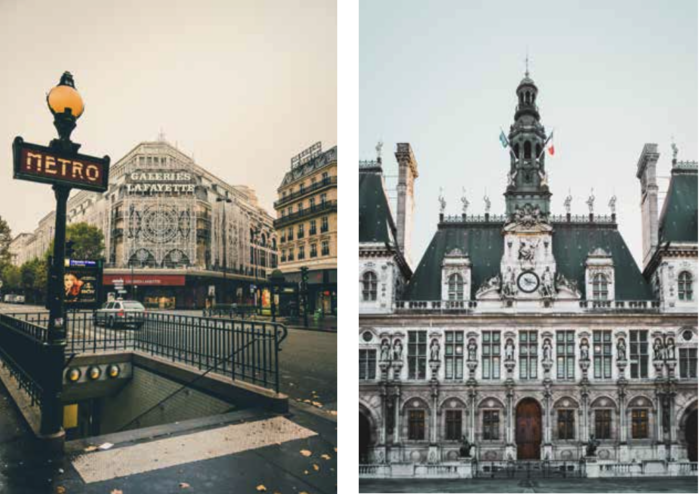
West Francia became France after expanding its territory under the reign of King Hugh Capet in 987. Wars quickly followed, including The Hundred Years War, which was one of many wars against the English.
On the home front, French royal power reached its peak with the reign of Louis XIV (1642– 1715). He was also known as the Sun King, and this was a renaissance-like time for France as French culture dominated Europe. However, with the peasants starving, the general public were appalled at the lavish spending of Louis XIV and something had to give. It did and that’s why 1789 saw the start of the French Revolution, Louis XVI was overthrown and the people established a republic.
The revolution was soon overshadowed by the imperial ambitions of Napoleon Bonaparte and the ensuing Napoleonic Wars, where France’s military dominated Europe before eventually being defeated. The monarchy was restored, but instability followed and a second republic, second empire and third republic followed in the nineteenth century.
The early twentieth century was marked by two World Wars, in 1914 and 1939, and a return to a democratic republic after liberation. France is currently in its Fifth Republic, established in 1959.
Principal Industries in France
The main industries in France are comprised of sectors such as energy, automotive, aerospace, technology and tourism.
Other Important Industries
France has more companies working in the services sector than in any other part of the economy. With heavy investment in these industries, they employ 27% of the workforce and make up 39% of the country’s GDP. France is the sixth largest agricultural producer in the world and the largest in the European Union. There are huge wheat farms in the north of the country, while the south is renowned for its vineyards and horticultural products.
Doing Business in France
With the 5th largest economy in the world and big businesses in energy and technology, doing business in France is a must for any serious start-up or scale-up. Among the advantages, France has a stable business climate, an educated workforce and sophisticated consumers.
Since the Second World War, the French government has introduced protectionist policies. Because these policies don’t unnecessarily tie companies up in red tape, they are largely accepted by businesses who work hand in-hand with senior civil servants. On the other side of this, France has privatised several large companies but still has a strong presence in the power, defence, public transport and financial sectors.
One characteristic that seeps into French business practices is the value placed upon educational attainment. Competitiveness is instilled in schoolchildren from an early age and this carries through to the workplace. With this in mind, well-prepared meetings and research delivered in an articulate and eloquent manner is often the key to winning the respect of French decision-makers.
The View from the Ground
When describing a country and its culture, you can write down all the facts and figures you like but if you want the full story, you need to get the perspective of someone with a lived experience of being there. That’s why we’ve asked Gabriel to give us his take on what it’s like to live and work in France.
In France, business is very formal, especially if you contact the big companies and the decision makers. There is a certain self-importance among these people who went to the big schools, and you cannot even start the conversation with their first name like you do in the Netherlands or in Great Britain. That would be a no-no. Obviously, once you get to know them better it’s fine but in the first instance, it’s always Monsieur or Madame and then you can say the whole name but it’s very formal. Also, the protocols are really formal and you don’t get any direct kind of decisions. On top of this, you can’t be too pushy with the French because if you do, they put up their defences. I think they’re more uptight than the Germans. The Germans are more relaxed than this. It also depends on your domain of course, the tech start-ups and scaleups are more relaxed but the bigger companies lack this progression to a more relaxed way of doing business.
Going to the right school is important in France if you want to get the country’s top jobs. There are certain schools that turn out politicians and presidents. It’s a bit like Eton in the UK. We have schools like that here too which creates a sort of elitism. Also, these people don’t work their way up as you might traditionally do in the American or the English way where you get a degree and climb the career ladder to become an executive. That doesn’t happen a lot in France.
Like the Dutch, the French enjoy making fun of the Belgians, which might explain why they think we’re arrogant. In other international relations, there is a kind of animosity to the English of course. That is for historical reasons but there is still a lot of rivalry there. As for the Germans I would say there is a mutual respect. Outside of business though, there have been a few political squabbles, mainly because Germany has the louder voice. When Germany makes a decision, everyone follows suit and France doesn’t like that. So, yes there is respect, but we say it’s only because of their massive exports and if they didn’t have BASF or Mercedes there would be no German economy. I’ve also heard that the Germans say the French are arrogant. But that’s because they all come to Paris and the capital of every country has arrogant people in it. Look at London for an example. You are not going to have the same experience with people in London as you would if you were in Leeds. It’s the same with Paris and the rest of France.
I think there is a certain generation who take business lunches and people like to do this. Also, the Chinese like to do business while eating and I thought it was quite old school because most of the new generation likes junk food. But it seems to be making a comeback. You still have a lot of people going to the bistro and the brasserie and having business lunches for an hour or so, drinking wine and everything but this would never happen in Germany. People in Paris though are having good food and taking their time in the lunch break so it’s still a thing. I think it’s the new generation who are leading this revival as it’s they who are doing business lunches now. There are also the matchmaking lunches which is a very French thing. If you own a scaleup, you may be invited to one of these big lunches where everyone is in business and it’s like a networking event.
Marseilles is very different to Paris both in terms of people and place. In fact, my cousin is from there and they have all the big IT companies in Marseilles so yeah, it has become a bit Americanised. Also, I would say from the mentality it’s very different. It’s much more laid back in the South. Paris is a bit like London or Amsterdam you know, it’s the rat race. In the South there’s a very Latin vibe in terms of the laid-back atmosphere.
Business relationships aren’t as important in France as they are in other European countries. It depends on who you’re working with. I’ve had some clients who were very personal, and we had a really good relationship and then there were some people where it’s very formal and after the first meeting you still have to say Monsieur and it’s all very stiff. As a tip, I would say to go for a mix between formal and casual but I think it’s changed also with the new way of doing business via Zoom and everything. I don’t think everyone is at home in a suit and doing the call and I have seen some people being casual.
The French have a very good sense of humour and they don’t take themselves too seriously. There’s a certain amount of self-deprecating humour which is very French. Beyond that of course, we have strikes and unions which is also very French. I mean, we still have the mentality of the French Revolution. So, if your group of people is targeted by a certain policy then the first thing you do is go on the street. Even the police do this when their salaries are being cut. So yeah, everybody’s going out on the street. Some countries are actually jealous of our ability to protest.
Business Etiquette
French business etiquette is quite formal and some things to remember include calling people Monsieur or Madame. It would also be useful to learn French gestures, as they may have a different meaning to those you use in your home territory and if you have one side of your business card printed in French, this will be greatly appreciated. The decision-making pace inFrench businessis rather slow. Decisions are usually not made at the first meeting, because businesspeople prefer to discuss things in detail with somebody at the top. Therefore, patience will be appreciated whereas pressure will be taken negatively.



